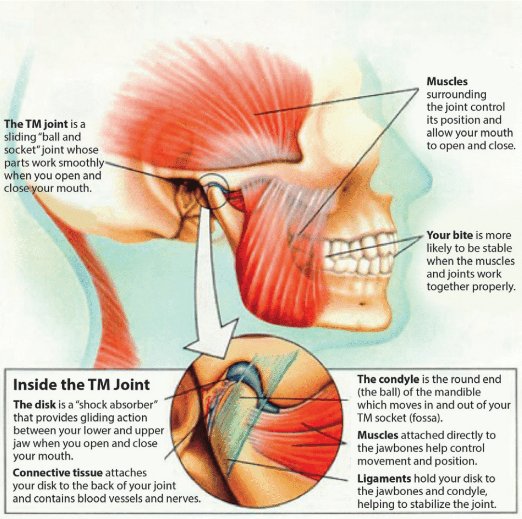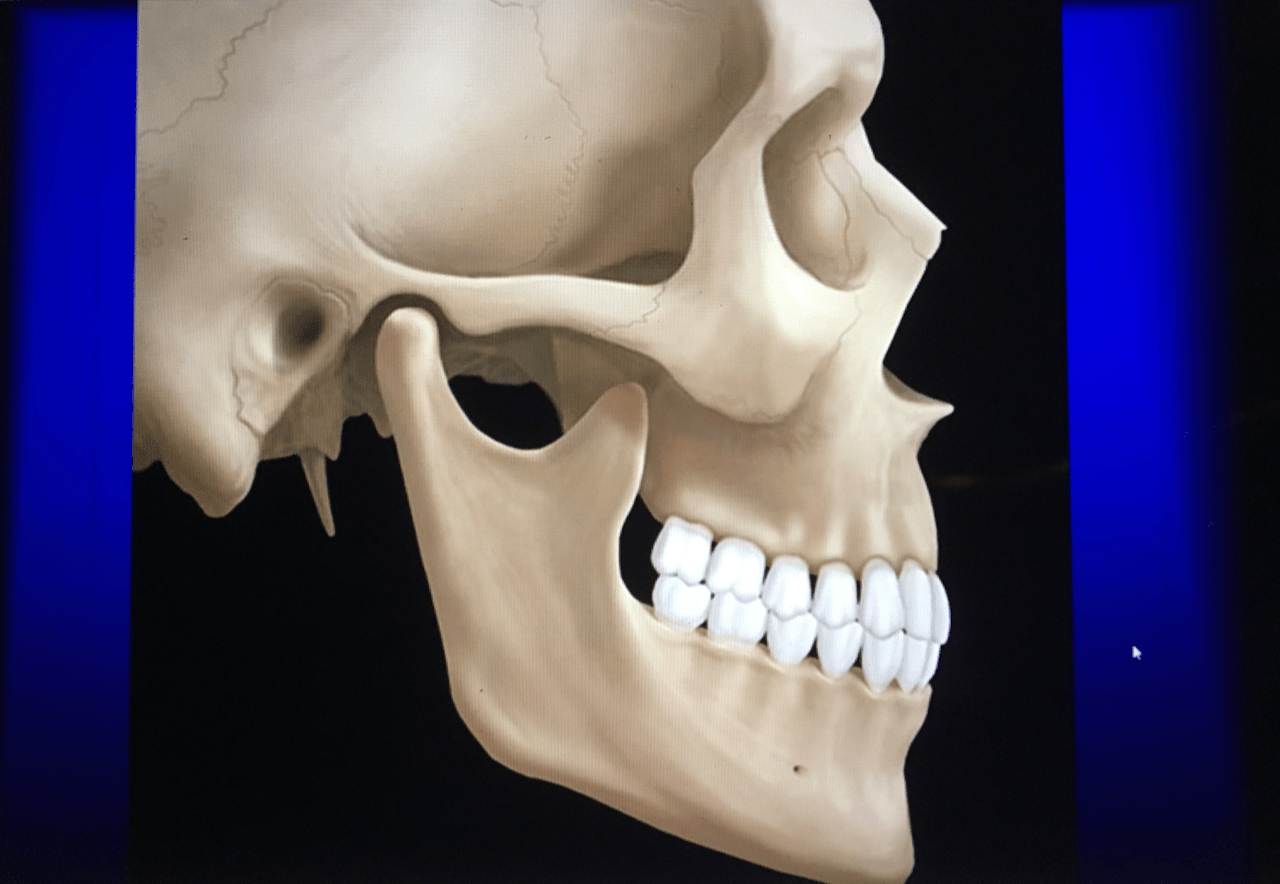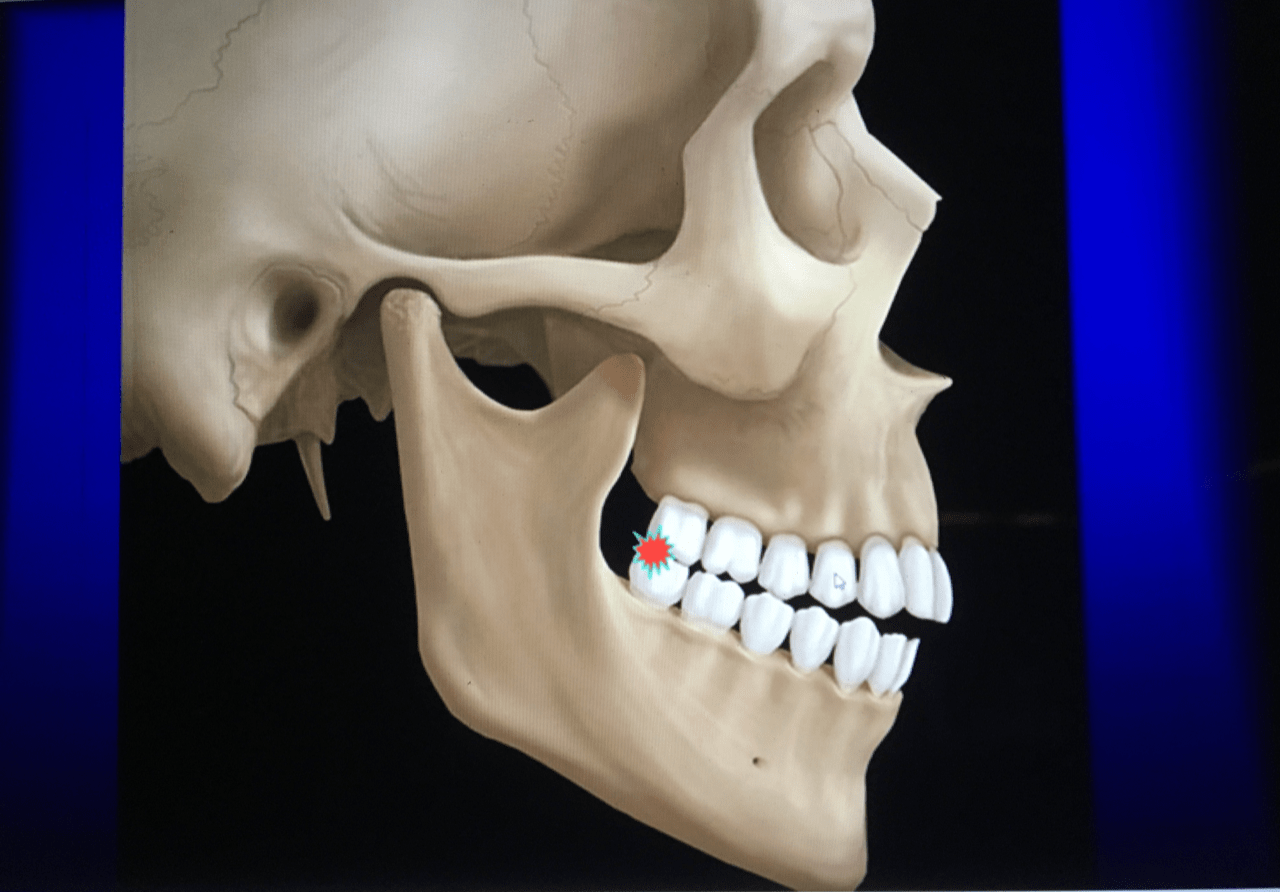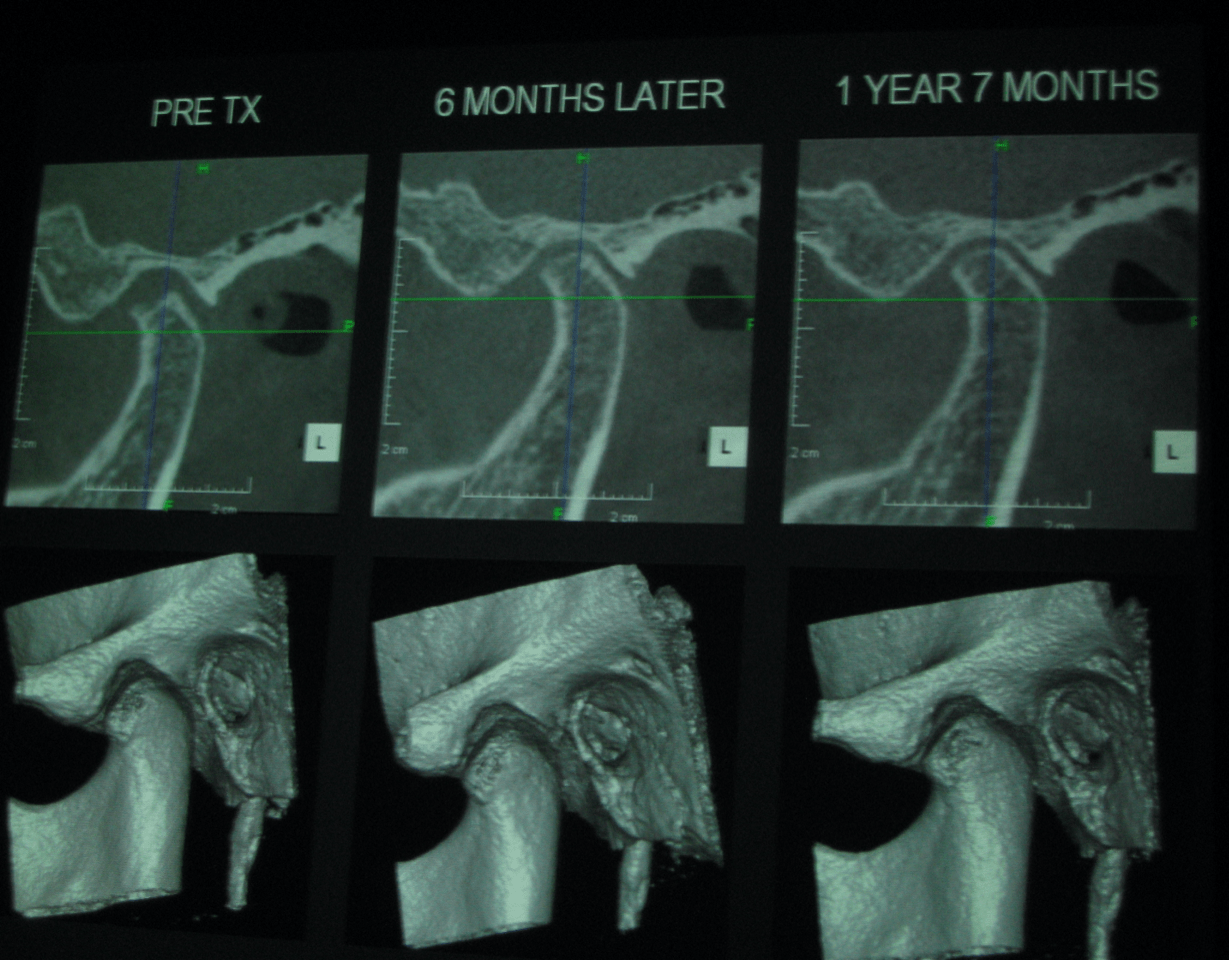Alleviating Pain & Improve Your Quality of Life
Patients who suffer from TMD (temporomandibular joint disorder) often experience facial pain or discomfort, accompanied by popping or clicking sounds when opening or closing the mouth. These issues can lead to more serious health concerns such as chronic headaches, jaw pain, dizziness, or neck and shoulder pain.
Dr. Knight provides comprehensive treatment in his Louisville, KY, and Radcliff, KY locations for patients experiencing symptoms of TMD.
TMD Treatment
TMD can range from mild to severe. A proper diagnosis is the only way to assess which treatment option will be most helpful to you. Dr. Knight can create a fully customized treatment plan to address your specific needs.
We utilize the latest innovative technology to provide efficient, predictable care for our TMD patients in Radcliff & Louisville, KY.

What Causes TMD?
All of your oral and maxillofacial structures work together to function efficiently. When something is out of alignment or is not working properly, it can lead to more severe and long-lasting issues. Some causes of TMD include:
- Stress: Anxiety and stress can lead to frequent tightening of the facial muscles and clenching of the jaw.
- Arthritis: Several types of arthritis can contribute to TMD, including rheumatoid arthritis, infectious arthritis, osteoarthritis, or traumatic arthritis.
- Bruxism: Teeth grinding or clenching can overexert the muscles and joints of the face, causing chronic discomfort.
- Misaligned articular disk: The articular disk is the small protective cushion found in many joints throughout the body. In the TMJ, the disk helps maintain smooth function when opening and closing. If the disk is misplaced or worn down, it can result in discomfort.
- Misaligned teeth: When the teeth do not fit together properly, it can cause overexertion and stress on the facial muscles and TMJ.
- Tooth erosion: If your teeth do not fit together properly when you bite down, it can cause extensive wear and tear, further complicating issues with your TMJ and jaw muscles.

TMD Treatment In Louisville, KY
Common Symptoms of TMD
TMD can result in several health-related issues. The effects can vary in each patient. For some, the discomfort is temporary. For others, it can result in a lifetime of problems. Most common in patients between the ages of 20 and 40, TMD affects more women than men. Symptoms may include:
- Chronic headaches
- Neck pain
- Shoulder pain
- Tenderness in your ears
- Jaw pain
- Clicking or popping sounds in the jaw when eating, chewing, or speaking
- Jaws that occasionally “lock” in one position
- Swelling
- A bite that does not feel normal


Treatment Options for TMD
The severity of TMD can range from mild to advanced. Your custom treatment plan will be dependent on your specific problems. Dr. Knight will work with you to determine which option will be best for you. A combination of treatments can be utilized to provide the most efficient solution. Some options include:
- Bite adjustment: Adjusting your occlusion is a conservative treatment that can alleviate points of pressure on your teeth, giving way to a more balanced bite. If your TMD is bite-related, this is a great place to start.
- Physical therapy: Facial exercises can be performed to strengthen the jaw muscles and encourage proper function.
- Splint therapy: This unique and effective therapy focuses on promoting the health and stability of your jaw joints and relieving pain and discomfort. Dr. Knight works to achieve proper dental occlusion (the way your upper and lower teeth fit together) while optimizing the health of your temporomandibular joints.
- Anti-inflammatory medication: Over-the-counter pain tablets can alleviate discomfort. Products such as ibuprofen or naproxen also help reduce swelling and inflammation.
- Injections: Some patients may benefit from the use of cortisone injections, which can reduce inflammation in the jaw joint and alleviate pain.
- Muscle relaxers: Certain muscle relaxants can decrease tension in the facial muscles.
- Surgery: In some cases, orthognathic surgery may be necessary to correct TMD. This type of treatment is indicated when conservative treatment has not been successful. If this is recommended, Dr. Knight will work closely with an oral surgeon (OMS) to provide you with the best comprehensive care possible.

